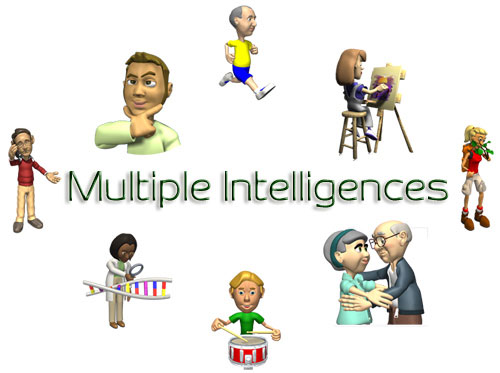 Intrapersonal Intelligence
Intrapersonal Intelligence
Gardner (1993) says Interpersonal intelligence turns outward and Intrapersonal turns inward. He explains in Frames of Mind that the core capacity at work here is access to one's own "feeling" life - one's affects or emotions; the capacity to instantly effect discriminations among these feelings. At it's most advanced level, Intrapersonal knowledge allows one to detect and to symbolize complex and highly differentiated sets of feelings.
- Ask Why: They naturally ask for the reasons or meanings behind things.
- Strong-Willed: They act on their strong opinions and beliefs.
- Self-Reflective: They reflect on their own behavior and motives, which creates an understanding of themselves.
- March to a Different Drummer: They have their own ideas and goals that lead them in different directions from others.
- Self-Actualizers: They have the ability to achieve their ambitions.
- Intuitive: They have, and give credence to, their hunches and feelings.
- Conscious Consciousness: They have an awareness of what they are thinking, feeling, and doing.
- Introspection: They look into their own minds and feelings. They observe and analyze themselves privately.
- Self-Directed: They feel comfortable directing their own work and activities.
- Independent: They are content working alone and being on their own.
- Accurate Model of Self: They know themselves so well that they have a clear understanding of themselves.
- Ethical System: Because these people know themselves and what they believe in, they have highly developed ethical systems.

